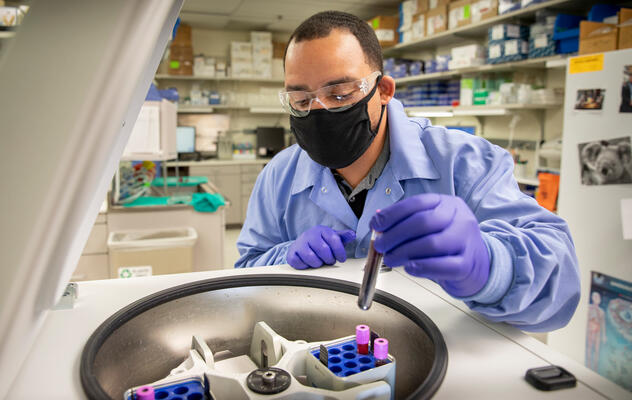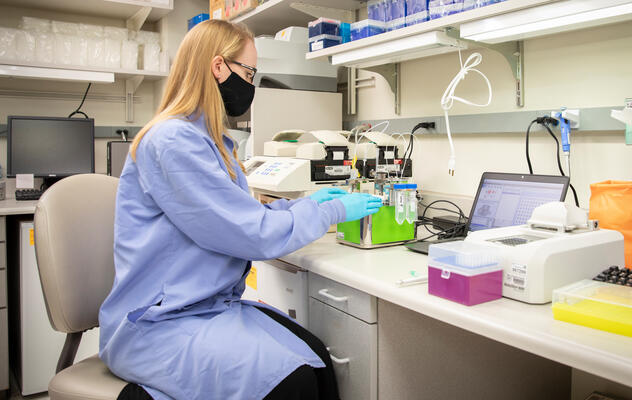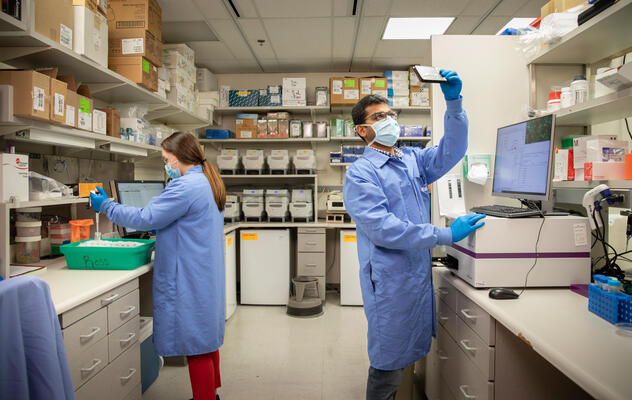-

Global sampling intake
Dr. Ross' lab receives samples from many countries around the world. Genetic studies are impossible without the generous contribution of genetic material from clinical patients, healthy participants and deceased individuals.
-

High-throughput automation
Proper liquid-handling techniques are critical for all experiments. In Dr. Ross' lab, the use of liquid-handling robots is essential.
-

Leading the way
Dr. Ross' lab team works together investigating genetic variations and the possible associations with ischemic stroke.
Overview
Stroke is a complex neurological syndrome that can be divided into two main types. Ischemic stroke occurs when there's a sudden decrease in blood flow to regions of the brain. Hemorrhagic stroke occurs when there's bleeding in the brain.
Ischemic stroke is the most common type of stroke. It can be subdivided by whether the blockage occurs in a large artery (large vessel occlusive disease) or in a small artery (small vessel occlusive disease), or if an embolus travels from the heart to lodge in a cerebral blood vessel (cardiogenic stroke).
This heterogenic phenotype associated with stroke is indicative of the synergistic effects of genetic and environmental determinants. Smoking or being the first-degree relative — such as a parent, an aunt, a grandparent or a cousin — of someone who has had a stroke is reported to independently almost double the risk of ischemic stroke. This information supports the hypothesis that stroke is a result of an intricate interplay between genes and the environment.
The mission of our laboratory is to identify those genetic factors and elucidate their role in the risk of vascular disease.
Led by principal investigator Owen A. Ross, Ph.D., the Stroke and Vascular Disease Laboratory at Mayo Clinic in Florida has five main research projects:
- Clarifying the joint effects of smoking and genetics to help identify people at risk of ischemic stroke and improve preventive diagnosis and treatment.
- Mapping stroke-related genes by studying families with a history of stroke.
- Exploring the relationship among NOTCH3 genetic variants that we hypothesize increase susceptibility to ischemic stroke.
- Working to identify variation within the mitochondrial genome (mtDNA) that associates with ischemic stroke.
- Examining tissue to help identify gene expression and genetic variants that increase the risk of vascular dementia.
Our lab ultimately hopes to help advance individualized medicine in disease, including refining diagnosis, identifying biomarkers and developing targeted drugs.
Read more about our research projects.